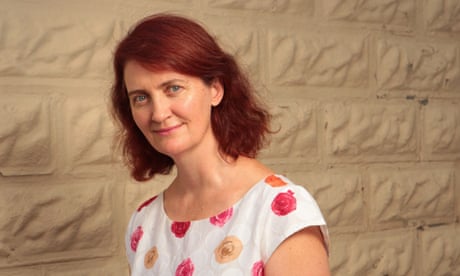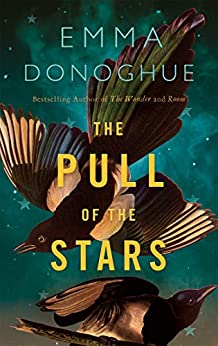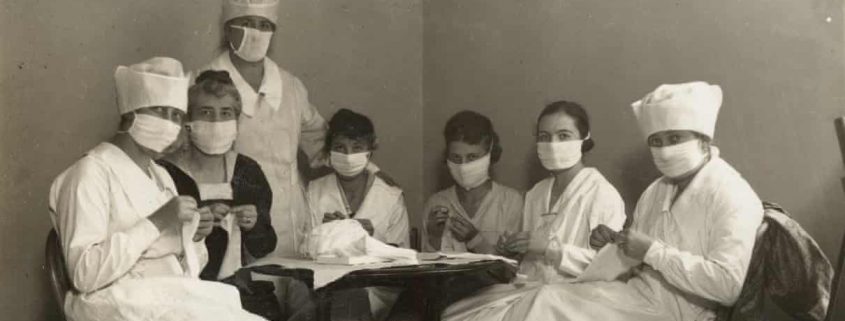THE ARTS REFLECT
THE ARTS REFLECT
By Norman Warwick
It is, indeed, a very ill wind that blows nobody any good, as author Keith Lowe might acknowledge. His book, Prisoners Of History, looking back on world war two monuments, suddenly seems very prescient in these days of Black Lives Matter and will surely benefit from recent news footage of statues being de-throned.
Similarly, Andrea Sarginson´s novel, Man Of Glass, a factual look at a period of history through story, seems part of the zeitgeist as it helps us to compare and contrast coronavirus with the plague that swept Britain, at great speed, in the sixteen hundreds.
There is, too, one book that amazingly has had its publication date brought forward from Autumn to the mid- summer of 2020. That is undoubtedly because it’s set in a Dublin hospital during the 1918 flu pandemic.
Sarah Moss, writing in The Guardian, at
says ´Reading it now offers a particularly eerie version of the time travel of historical fiction; one can’t stop thinking that it was written in 2018 for us to read in 2020, based on records from 1918.
There are dizzying swoops of both time and imagination. The novel’s Dublin is certainly uncannily familiar for this year’s readers, plastered with injunctions to Stay Out Of Public Places … See Only Those Persons One Needs To See, ´Refrain from shaking hands´, ´If in doubt, don’t stir out´.
Those posters seemed to anticipate the messages of today and we can only wonder if the announcements of the time that ´the government has the situation well in hand´, and ´there is no real risk except to the reckless´ were viewed with same suspicion and confusion as have many government edicts this year concerning lockdown, let-out and lockdown, masks or no masks and two or one metres of social distancing.
In Dublin, schools and shops are closed, and those forced by necessity on to crowded trams regarded each other with a volatile mix of fear and camaraderie. That sentence could be applied today in the UK and even here on Lanzarote, where we seem desperate to reassure tourists that our islands are safe, whilst ignoring the fact that they might not be after the first influx of tourists.
Many critics and reviewers have noted in the past that ´a defining strength in author, Emma Donoghue’s work is narrative voice, and here it is as strong and compelling as that of central character Jack in her novel Room or of Lib in The Wonder.
Like the latter , her current novel The Pull of the Stars, is narrated by a nurse, a woman necessarily involved in the defining moments of strangers’ lives.
She delivers expertise and kindness, though her professionalism and her femininity are an unsettling combination for her era.
Central character, Julia, is working on the maternity fever ward of a city hospital, which is desperately short-staffed because of war and contagion. The hospital cares for pregnant women with severe flu, and Julia is working beyond her training because there is no one else available.
As we, the readers, come to know these patients over the period of their stay we, and Julia learn to read their bodies and speech as more than symptoms. We recognise that class privilege is no protection from grief, that a half-starved 17-seventeen year-old doesn’t bruise easily unless someone deliberately bruises her. As new generations have learned all over the world this summer, Julia saw that poverty and overcrowding and malnutrition tell their final tales in hospital beds.
The friendship between the young nurses lifts an otherwise necessarily grim account of suffering and deprivation

Writer Emma Donoghue shows Julia, whose own background is not very different from her patients’, to be sadly inured to social injustice, but a new doctor in the hospital, Kathleen Lynn, never forgets to be angry. Babies born in the slums, she says, have less chance of surviving a year than men in the trenches.
Sounding like a suspicious scientist at a political health crisis press conference of the UK in 2020 Donoghue allows her character to speak aloud what too often today has only been whispered.
“Such hypocrisy, the way the authorities preach hygiene to people forced to subsist like rats in a sack.”
Dr Lynn was a real figure, a suffragette, nationalist and activist for social justice who fought in the Easter Rising and was arrested and imprisoned. In Donoghue’s account, Lynn is tired but glamorous, especially in the eyes of Julia, whose sense of agency is limited to her home life caring for a brother with shellshock and her work on the ward.

On the first of this novel’s three days, Julia is left in sole charge of the ward but given a ´runner´, a girl sent by the local convent, to help her. Bridie Sweeney is ´the pale type of redhead, light blue eyes, brow almost invisible´, under-fed and scarred like most of the hospital’s patients.
She proves uneducated but quick to learn and quick on her feet, caring by nature and pragmatic by experience.
The blooming friendship and admiration between the two young women lifts an otherwise necessarily grim account of suffering and deprivation.
Patients die because the flu is untreatable and those with underlying conditions including malnutrition and poverty have little strength to resist it; all Julia can do is keep them warm, nourished and hydrated and try to preserve their last vestiges of strength needed to survive the disease.
There is nothing cheerful about the situation, and so the novel depends on the voices and relationships of its three central women. They are all – as one would expect from Donoghue – complex, well-developed characters with distinctive voices and lives based on thorough research.

Photo 3 This reviewer, Sarah Moss, is the author of six novels and a memoir of her year living in Iceland, Names for the Sea, shortlisted for the RSL Ondaatje Prize. Her novels are Cold Earth, Night Waking, Bodies of Light, Signs for Lost Children and The Tidal Zone. Ghost Wall appears in September 2018.Sarah was born in Glasgow and grew up in the north of England.
After moving between Oxford, Canterbury, Reykjavik and West Cornwall, she now lives in the Midlands and is Professor of Creative Writing at the University of Warwick.
So, when she concludes that the book is ´vivid in ways that only excellent writing can offer´ that would seem a glowing recommendation of Pull Of The Stars. However, after such positive words and glowing terms I was amazed to read the final paragraph of this review.
Our reviewer found this novel admirable right up to the final chapters, when it veers, she thinks, into a disappointing cliché. I´m trying not to spoil anything, but if you’d like a haunting and finely balanced literary novel in which the plot isn’t suddenly taken over by depressing convention, stop 20 pages before the end´.
Nevertheless, I can see what she means. The flu pandemic of a century ago and today´s Covid19 don´t conform to any stereotypical or preconceived final scene, nor to the demands of writer or reader.
These past few months people have been unable to say final farewells to loved one, unable even to attend funerals. We will not know how deep the scars have wounded for perhaps generations to come, and it seems unfair to put the onus on the arts to offer us solace.
Waterstone´s are stocking the novel, of course, and are saying about it in their blurb that the novel is ´remarkably prescient and beautifully realized. This historical novel from the author of the seminal Room centres on a trio of female medics at the height of the 1918 Spanish Flu pandemic. Elegantly utilising the horrors of the outbreak as a means of exploring the intriguing characters of her protagonists, Donoghue produces yet another masterful slice of perceptive literature.
In an Ireland doubly ravaged by war and disease, Nurse Julia Power works at an understaffed hospital in the city centre, where expectant mothers who have come down with an unfamiliar Flu are quarantined together. Into Julia’s regimented world step two outsiders: Doctor Kathleen Lynn, on the run from the police, and a young volunteer helper, Bridie Sweeney.
In the darkness and intensity of this tiny ward, over three days, these women change each other’s lives in unexpected ways. They lose patients to this baffling pandemic, but they also shepherd new life into a fearful world. With tireless tenderness and humanity, carers and mothers alike somehow do their impossible work.
In The Pull of the Stars, Emma Donoghue once again finds the light in the darkness in this classic story of hope and survival against all odds.´
The truth is, though, whether bestowed with happy endings by their creators, or lfet in despair or whether left loose ended or neatly tied and packaged, all the arts can offer us is the opportunity to look upon reflections and reflect. From that some truths will emerge.
To check out Pull Of The Stars, you can drop in at your local Waterstone´s or search Amazon.
Publisher: Pan Macmillan ISBN: 2928377041861
The Pull of the Stars by Emma Donoghue (Pan Macmillan, £16.99).
To order a copy go to guardianbookshop.com. Delivery charges may apply




Leave a Reply
Want to join the discussion?Feel free to contribute!